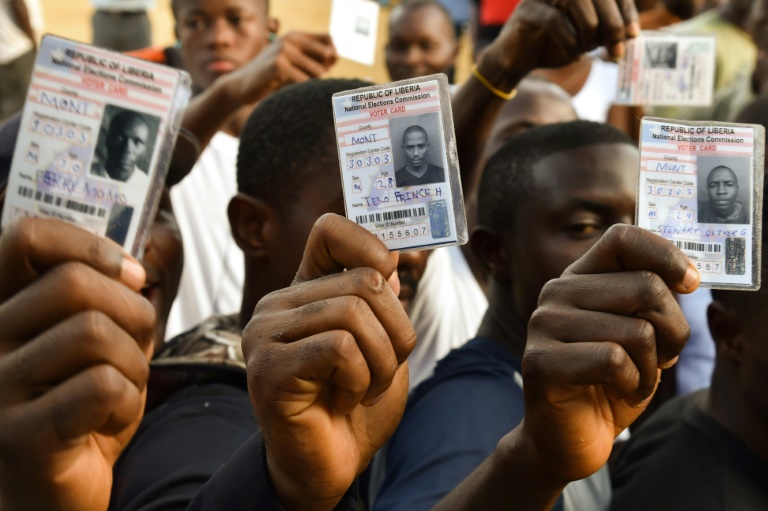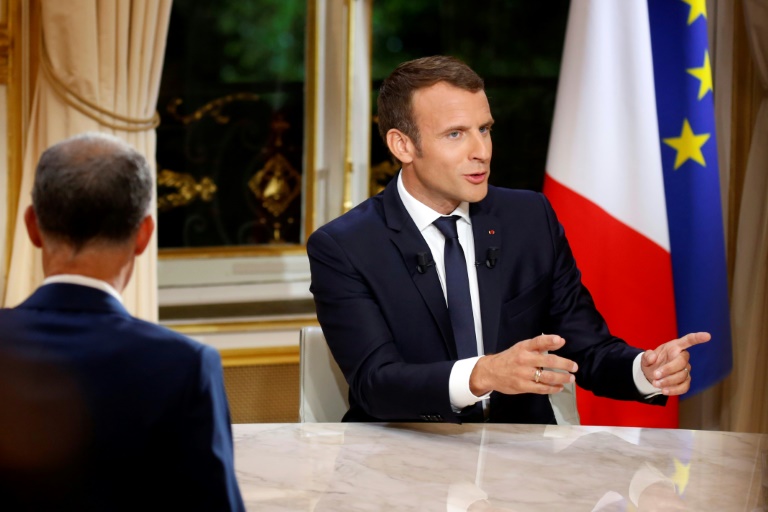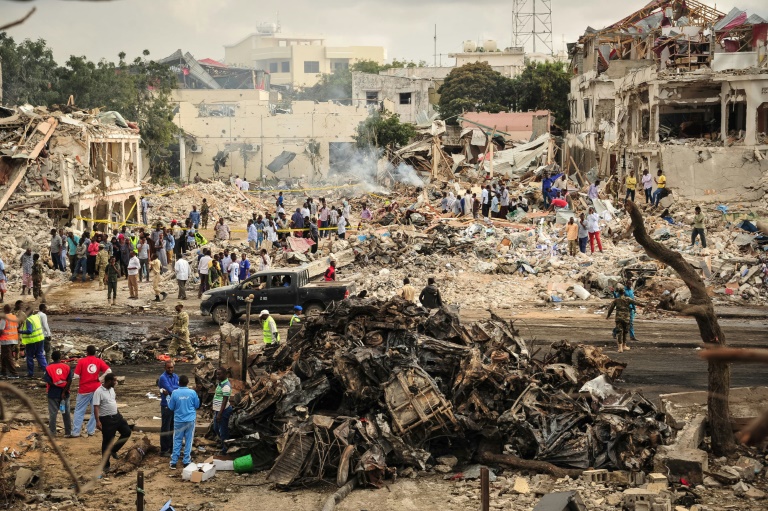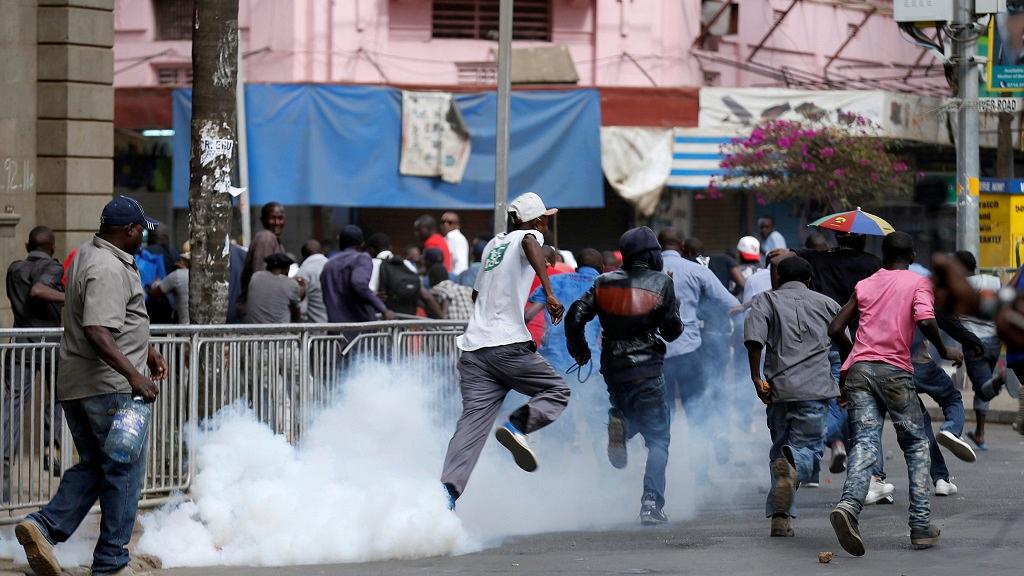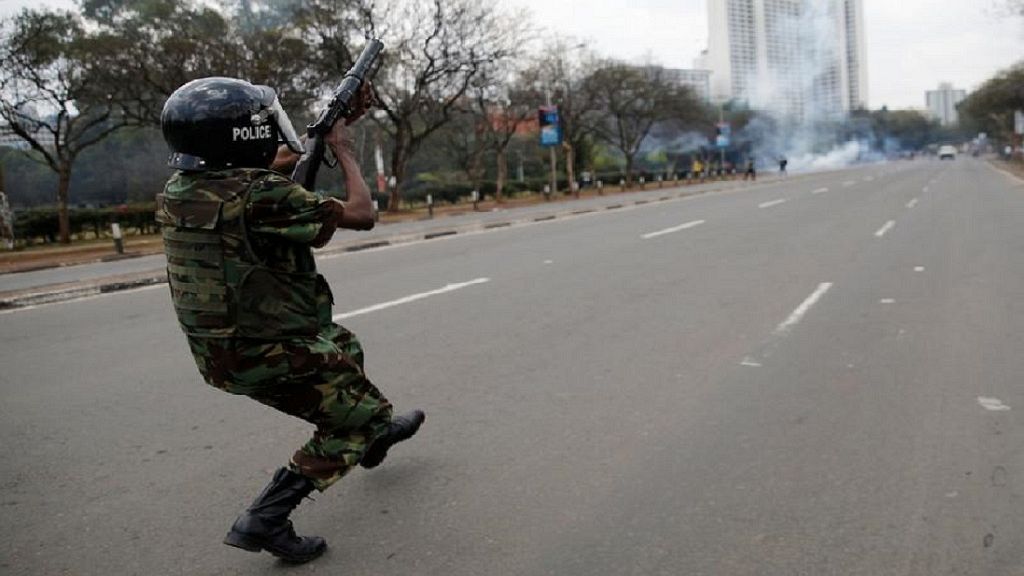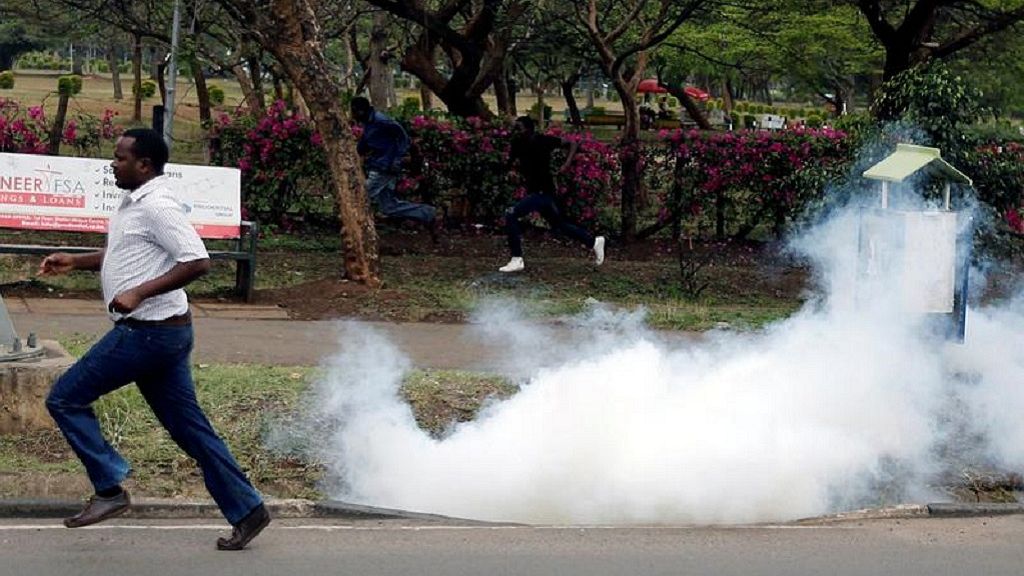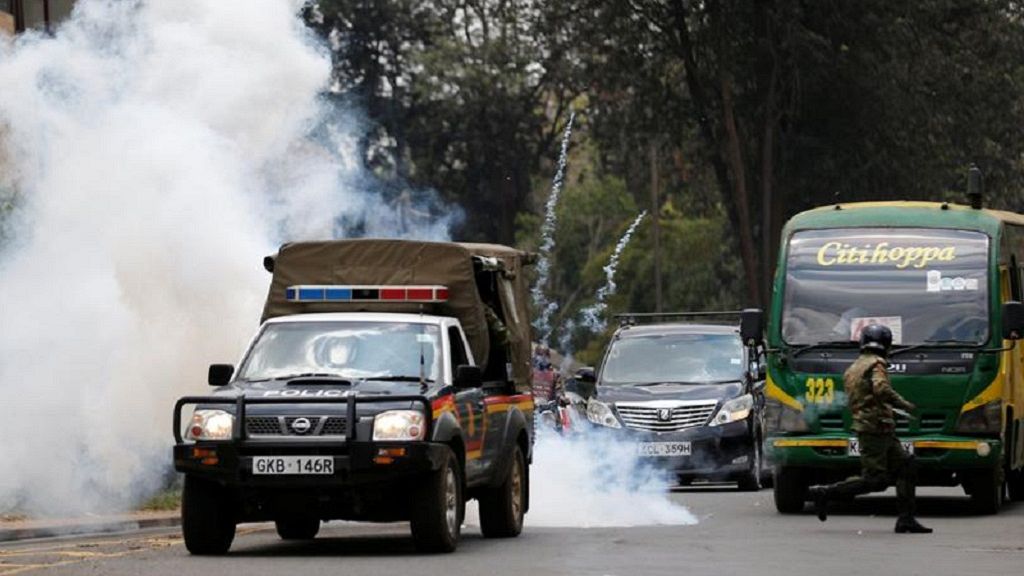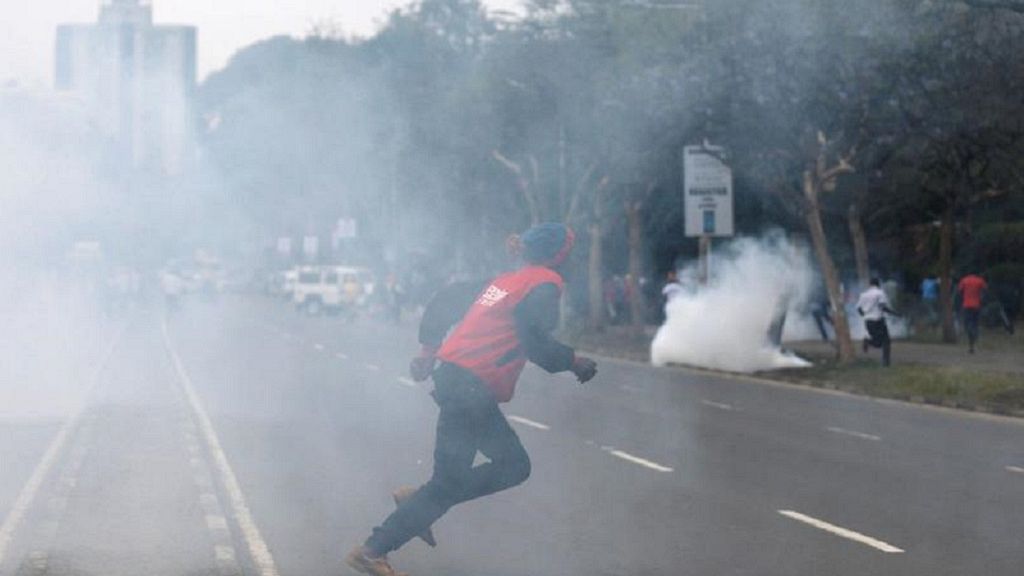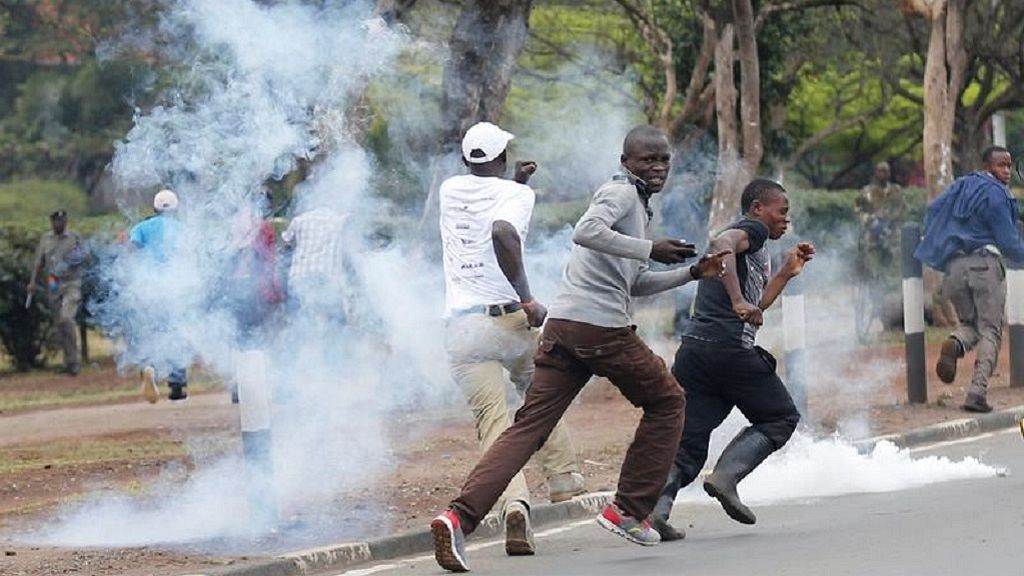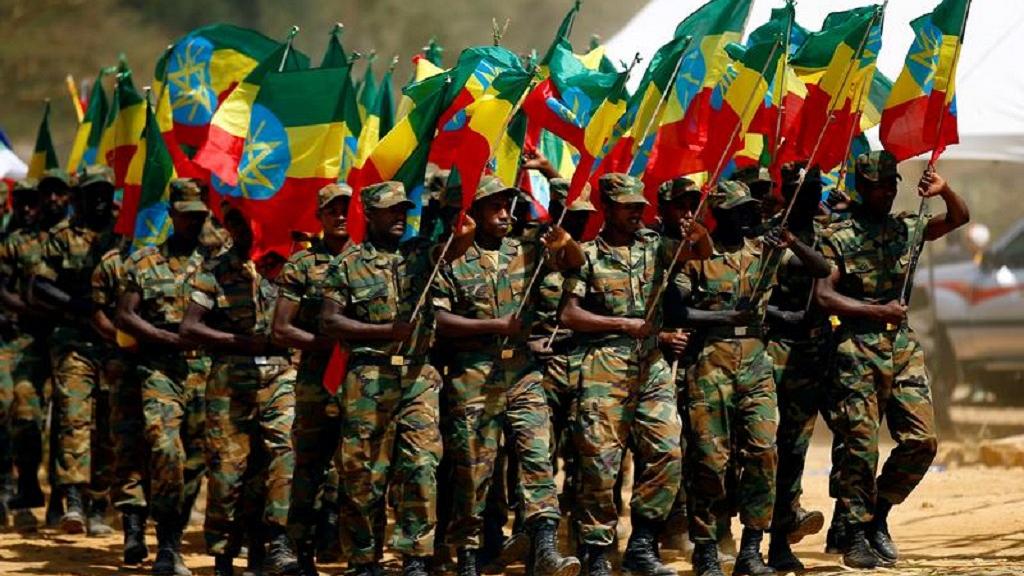Liberia's Weah, Boakai face presidential runoff next month
Former international footballer George Weah and Liberia's Vice President Joseph Boakai will face a runoff for the country's presidency on November 7, the national election commission announced Sunday.
With tallies in from 95.6 percent of polling stations, Weah took 39.0 percent of the votes and Boakai 29.1 percent, both well short of the 50-percent barrier required to win outright from the first round of voting held on Tuesday.
Whoever wins the second round of voting will replace President Ellen Johnson Sirleaf, Africa's first elected female head of state, who is stepping down after a maximum of two terms.
The handover would represent Liberia's first peaceful transfer of power in more than seven decades.
National Elections Commission chairman Jerome Korkoya told journalists that 1,550,923 votes had been counted and turnout was at 74.52 percent across this small west African nation.
 AFP/File / ISSOUF SANOGOFormer international Liberian football star turned politician and presidential election candidate George Weah shows his voting card prior to casting his vote at a polling station in Monrovia on October 10, 2017
AFP/File / ISSOUF SANOGOFormer international Liberian football star turned politician and presidential election candidate George Weah shows his voting card prior to casting his vote at a polling station in Monrovia on October 10, 2017Three other candidates took a significant share of votes, with veteran opposition leader, Charles Brumskine, at 9.8 percent; former Coca-Cola executive, Alexander Cummings, at 7.1 percent; and former-warlord-turned-preacher, Prince Johnson, at 7.0 percent.
These candidates will now decide which runoff contender they will direct their supporters to follow, holding significant sway over the final results.
Liberian voters have a clear choice between an establishment candidate in Boakai, who has served in governments for more than three decades, and the wildly popular but politically inexperienced Weah.
Boakai presents himself as an everyman who transcended his humble beginnings, and has attempted to craft a more energetic image after earning the unfortunate title of "Sleepy Joe" for his propensity to fall asleep at public events.
The vice-president has also had to undertake a delicate balancing act to promote his record in government, while distancing himself from Sirleaf to define his own vision.
This is Weah's second attempt at the presidency after losing to Sirleaf in 2005.
The first African player to win both FIFA's World Player of the Year trophy and the Ballon d'Or, Weah was largely absent from Liberia during the 1989-2003 civil war period, playing for a string of top-flight European teams including PSG and AC Milan.

